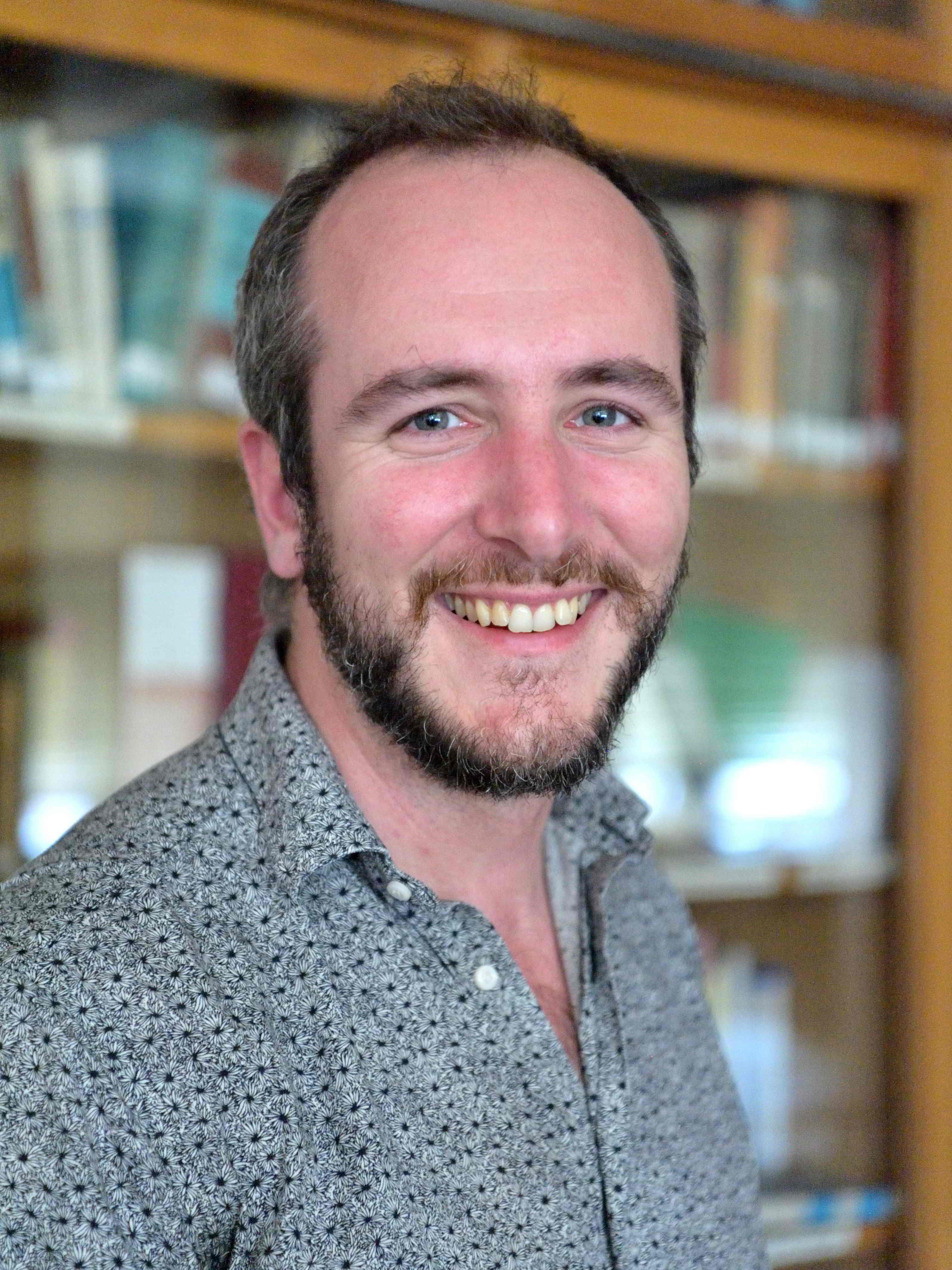Pierre-Yves Musso (PhD)
Job
CNRS, Researcher
Team leader, Team Gustation & Brain
- Post-Doctorate, taste and immune system, Tanentzapf lab, University of British Columbia, Vancouver, Canada
- Post-Doctorate, taste and post-ingestive detection, Gordon lab, University of British Columbia, Vancouver, Canada
- Post-Doctorate, stress effect on memory, Research Center on Animal Cognition, explain team, Toulouse, France
- Post-Doctorate, impact of non-caloric sweetener consumption, Energy & memory team, ESPCI-Paris-Tech, Paris, France
- PhD, involvement of sweet taste and caloric content in appetitive learning, Energy & memory team, ESPCI-Paris-Tech, Paris, France
Activities
Research theme
Pierre-Yves is a CNRS researcher and the group leader of the Taste and Post-ingestive Integration team (TPI) since January 2024. His team is investigating how taste and post-ingestive signaling interact.
Originally from Toulouse, he completed his Master at the Paul Sabatier university of Toulouse, where he worked on appetitive memory in the honeybee Apis mellifera. His PhD and a short postdoc at the Sorbonne university, in the team "Energy and Memory" in Paris where he worked on the caloric involvement for appetitive memory in Drosophila melanogaster; a short postdoc at the Center for animal cognition (CRCA) of Toulouse where he worked on how stress impacts memory in flies. He then moved to Vancouver at the university of British Columbia (UBC) in the Gordon lab to work as a postdoc for 5 years where he developed the STROBE: a new technology allowing automatic neural optogenetic activation upon flies' interaction with food. He also investigated how glucose and fructose ingestion modulate appetitive behavior in flies. Finally, he worked for 2 years as a research associate at UBC in the Tanentzapf lab on the relationship between taste and immune response in flies.
Scientific approach
Behavior, molecular biology, genetic, in-vivo brain imaging
Supervision
Pierre-Yves supervised numerous during his canadian postdoctorates.
He is currently supervising his first PhD student affiliated to the ES graduate school.
Aknowledgements
- 2023: Rewarded at the ATIP’Avenir (CNRS-INSERM) competition. Provided a 5 years fellowship in order to create a new independent team.
- 2023 : Rewarded at the CRCN-CNRS competition (section 25).
- 2022 : Awarded the « Brain Star Award » price by the Canadian association of neurosciences (CAN- CIHR-INMHA ).
- 2013 : 4th year of PhD obtained through the Labex memolife competition.
- 2010 : Rewarded at the ED3C graduate competition (PhD fellowship).
Key words
Taste, post-ingestion, neurosciences, Drosophila, behavior, metabolism, memory, immunity
Important publications
- Arntsen C, Grenon J, Chauvel I, Fraichard S, Dupas S, Cortot J, Audette K, Musso PY*, Stanley M* (2025). Artificial sweeteners differentially activate sweet and bitter gustatory neurons in Drosophila. biorXiv. *autors contributed equally. DOI: https://doi.org/10.1101/2025.02.06.636883
- Najera Mazariegos A, Manière G, Sillon L, Milleville R, Berthelot-Grosjean M, Aruçi E, Camp D, Alves G, Kaul R, Duval CJ, Chauvel I, Royet J, Grosjean Y, Musso PY*, Tanentzapf G*(2024). Detection of bacteria through taste receptors primes the cellular immune response. bioRxiv. *autors contributed equally. DOI: doi.org/10.1101/2024.09.26.615243
- Jellen Meghan, Musso PY, Junca P, Gordon MD (2023). Optogenetic induction of appetitive and aversive taste memories in Drosophila. ELife Sep 26:12:e81535. DOI: 10.7554/eLife.81535
- Musso PY, Junca P, Gordon MD (2021). A neural circuit linking two sugar sensors regulates satiety-dependent fructose drive in Drosophila. Science Advances Dec 3;7(49):eabj0186. DOI: 10.1126/sciadv.abj0186
- Muria A, Musso PY, Durrieu M, Ramon Portugal F, Ronsin B, Gordon MD, Jeanson R, Isabel (2021). Social facilitation of long-lasting memory is mediated by CO2 in Drosophila. Current Biology May 24;31(10):2065-2074.e5. DOI: 10.1016/j.cub.2021.02.044
- Musso PY, Junca P, Jelen M, Feldman-Kiss D, Zhang H, Chan RCW, Gordon MD (2019). Closed-loop optogenetic activation of peripheral or central neurons modulates feeding in freely moving Drosophila. Elife Jul 19;8:e45636. DOI: 10.7554/eLife.45636
- Jaeger AH, Stanley M, Weiss ZF, Musso PY, Chan RCW, Zhang H, Feldman-Kiss D, Gordon MD (2018). A complex peripheral code for salt taste in Drosophila. Elife Oct 11;7:e37167. DOI: 10.7554/eLife.37167
- Musso PY, Lampin-Saint-Amaux A, Tchenio P, Preat T (2017). Ingestion of artificial sweeteners leads to caloric frustration memory in Drosophila. Nature Communications Nov 27;8(1):1803. DOI: 10.1038/s41467-017-01989-0
- Musso PY, Tchénio P, Preat T (2015). Delayed Dopamine Signaling of Energy Level Builds Appetitive Long-Term Memory in Drosophila. Cell Reports Feb 24;10(7):1023-31. DOI: 10.1016/j.celrep.2015.01.036


